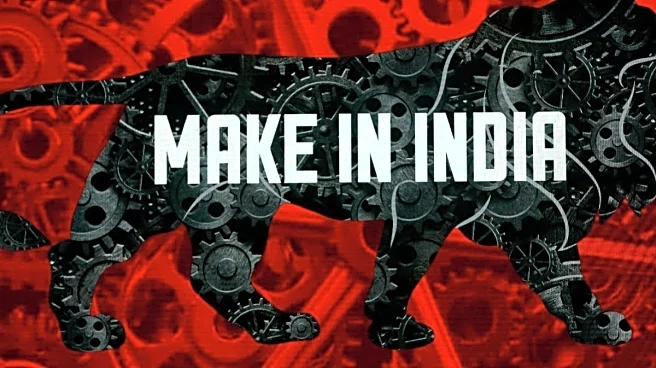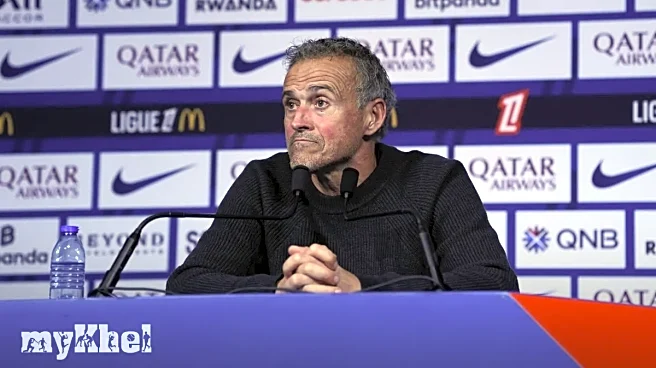The ‘Swasthy Mahila Shashakt Parivar’ campaign was launched in Madhya Pradesh’s Dhar on September 17. During a large public gathering, Prime Minister Narendra Modi urged citizens to adopt Swadeshi.
“Whatever
you buy should be made in the country, whatever you buy should carry the sweat of a Bhartiya, whatever you buy should have the fragrance of Bhartiya soil,” Modi had said. This call for Swadeshi is not new, as Modi has stressed it at many public programmes over the past several months describing it as the guarantee of a developed Bharat.
To connect citizens with this call, the BJP has outlined the ‘Viksit Bharat’ campaign. This campaign will commence on the birth anniversary of Pandit Deendayal Upadhyaya (September 25) and continue until the birth anniversary of former Prime Minister Atal Bihari Vajpayee (December 25), a symbol of Bhartiya pride. It will also include Mahatma Gandhi’s birth anniversary (October 2), celebrated with the purchase of khadi, as he was a great inspiration for Swadeshi.
Mahatma Gandhi defined Swadeshi as “the spirit that prompts us to use things and services available around us. The essence of Swadeshi is serving what is near with a sense of family”. Pandit Deendayal Upadhyaya had stressed that “policies should prioritise village-based entrepreneurship and local production”.
Vajpayee enhanced Bharat’s self-respect by his pride in the Hindi language and through nuclear tests that established Bharat’s strength on the global stage. This campaign aims to connect society with the spirit of Swadeshi.
In providing excessive comfort, systems like capitalism, communism, or socialism, which centre on either the individual or the state, create visible dangers. These systems advocate centralisation and class conflict, promoting material indulgence.
By claiming ownership over natural resources, they exploit nature, leading to an environmental crisis. Irregular, excessive, or untimely rainfall results from this exploitation.
These systems foster conflict, treating the world as a market rather than a community, which Bharat also imitated post-independence. Continuing this cycle threatens humanity and global peace.
The Swadeshi philosophy advocates for developing small, village-centred industries that generate employment, promote environmental conservation, require minimal energy and capital, and foster strong social relationships. Pandit Deendayal Upadhyaya said: “Antyodaya — the welfare of the poorest — means that the benefits of development should reach the lowest levels of society. Therefore, the empowerment of local products is both a moral and economic necessity.”
During British rule, the Swadeshi movement resisted colonialism and united society through festivals like Ganeshotsav, burning foreign clothes, and the spinning wheel (charkha). Today, Swadeshi products must meet global standards, leveraging advanced technology and showcasing intellectual strength across all sectors. Bhartiya products must lead global market competition.
Since 2014, the Centre under Modi’s leadership has undertaken significant initiatives across various sectors, with evident results worldwide. Bharat’s ‘Make in India’ and ‘Make for India’ policies have promoted Swadeshi and self-reliance, especially in defence. We now manufacture the BrahMos missile, exemplifying our indigenous capabilities.
Defence exports have reached nearly Rs 24,000 crore, supplying products to about 100 countries. We’ve achieved milestones like developing semiconductor chips and space missions like Chandrayaan and Mangalyaan.
The MSME sector now contributes 30 percent to Bharat’s GDP. In the startup ecosystem, Bharat has set remarkable records.
Through the ‘Vocal for Local’ vision and the One District One Product (ODOP) initiative, local products have entered global markets. We now export bulletproof jackets to over 100 countries, and mobile phone manufacturing exports have increased from Rs 1,566 crore in 2014-15 to Rs 1,20,000 crore in 2023-24.
The export of generic medicines and vaccines has doubled from $11 billion in 2014 to $24 billion today. In the toy sector, Bharat has become an exporter, ending dependence on China.
Bharat now manufactures world-class railway coaches, meeting all technical parameters, and exports them to 10 countries. We also export organic products to over 100 countries. These examples reflect Bharat’s immense potential and talent and reaffirm our capability to achieve more.
Speaking from the ramparts of the Red Fort, the Prime Minister called on the nation to free itself from all forms of a colonial mindset. He stressed that Swadeshi extends beyond the economy to every aspect of life, including language, attire, traditions, and culture.
In a ‘Mann Ki Baat’ address, he urged people: “Gifts should be those made in Bharat, clothes should be those woven in Bharat, festival decorations should be with items made in Bharat, and the lights should be Bharat-made too.”
If adopted in everyday life, this appeal will increase employment for Bhartiya citizens, reduce dependence on foreign goods, retain capital within the country, and boost Bharat’s development and welfare of the poor. This way of living pledges a prosperous and developed Bharat, fostering both economic growth and cultural enrichment.
(Shiv Prakash is the national joint general secretary, organisation, of the BJP. Views expressed in the above piece are personal and solely those of the author. They do not necessarily reflect News18’s views)









/images/ppid_a911dc6a-image-177049953438451437.webp)



